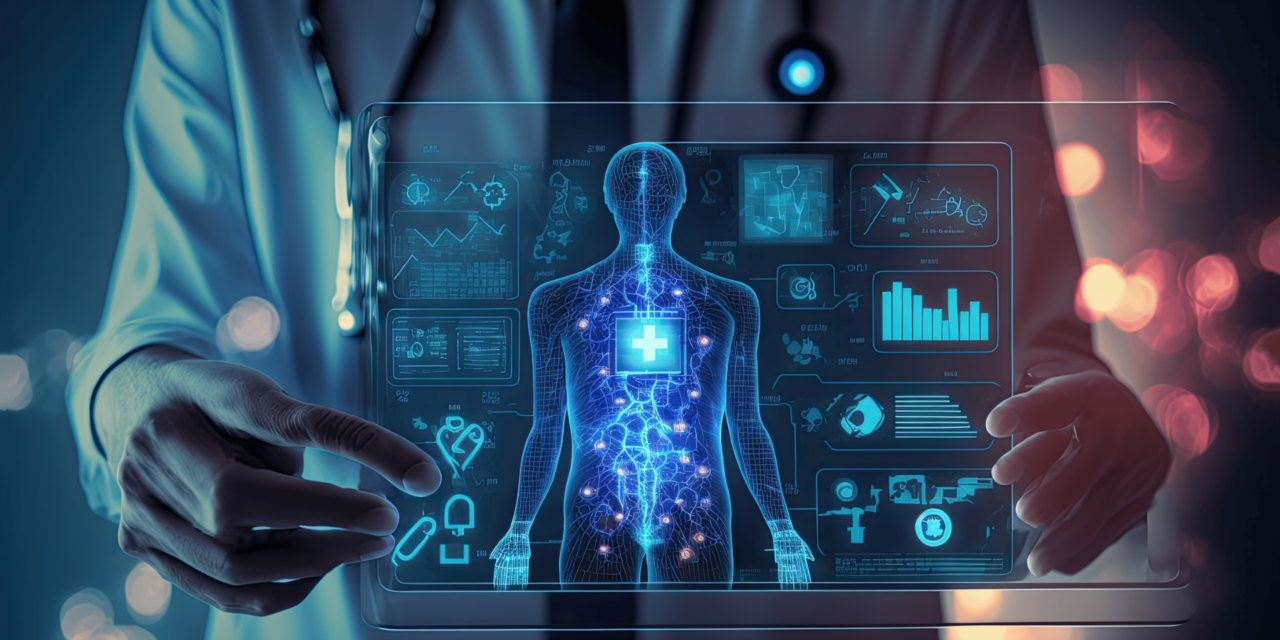The Following Are Nine Applications Of Generative AI In Healthcare:
1. Screening and Diagnosis
AI in healthcare, paired with predictive analysis, can aid in the detection and diagnosis of many diseases, hence improving patient outcomes. AI analyses massive data sets and detects illnesses depending on the information entered into its system. Doctors and other healthcare practitioners may use generative AI to develop more rapid and accurate diagnosis and treatment plans for their patients, resulting in better patient outcomes.
2. Medicine That Is Tailored To The Individual
Massive medical databases may be analysed by generative AI algorithms to identify patterns, anticipate results, and improve treatment and wellbeing. These personalised medicine strategies may be used by healthcare practitioners to create better educated treatment regimens and follow-up care for their patients, increasing their chances of success. Healthcare professionals can use generative AI to connect with patients more readily, for as via email and text, to assist patients comply to their medications and/or treatment programmes. Offering patients personalised medicine can lower total healthcare costs in addition to improving results.
3. Enrollment Growth
Generative AI in healthcare can encourage more individuals to enroll in health insurance by providing valuable information and timely reminders, particularly during open enrollment periods. For example, by informing policyholders of policy changes or any essential activities they must take, generative AI may increase policyholder engagement and motivate them to take the appropriate steps on time.
Furthermore, because generative AI allows insurers’ healthcare teams to swiftly produce language, they may build several versions of their plans that are customised to different customer categories. Employees nearing retirement, for example, require different alternatives than workers with young children.
4. Drug Development
Data from clinical trials and other sources may be analysed by generative AI systems to find potential targets for new medications and forecast which compounds will be the most successful. This might hasten medication development and bring novel therapies to market sooner and at a lesser cost.
5. Understanding of Unstructured Medical Data
Unstructured medical data, such as electronic health records, medical notes, and medical imaging such as X-rays and MRIs, cause gaps in analysis and must be transformed to a structured format. Generative AI can discover and analyse unstructured data from many sources and transform it to a structured manner to give healthcare professionals with full insights.
6. Maintenance that is Predictive
Hospitals and other healthcare facilities may utilise generative AI to forecast when medical equipment will break, allowing them to better manage maintenance and repairs and reduce downtime.
7. Robotics in Medicine
AI-powered medical robots are used in hospitals to assist with surgical operations such as suturing wounds and offering insights on surgical procedures based on medical data. Medical institutions may teach these robots to interpret health issues using generative AI.
8. Creating New Research Concepts
In healthcare, generative AI may also be utilised to generate new concepts. Users in healthcare, for example, might use ChatGPT to develop ideas by asking questions and receiving quick responses, or just entering a desired subject. For example, a user may inquire, “Which drugs have the best chances of curing migraines?”
9. Avoiding Medical Mistakes
Generative AI can automatically repair spelling problems during documentation work, which is useful for electronic prescriptions, and ensure that the proper data populates the system.
THE DIFFICULTIES OF GENERATIVE AI
While there are some advantages to using generative AI in healthcare, there may also be some disadvantages.
In healthcare, for example, generative AI is used to generate synthetic pictures, films, and sounds; however, it is sometimes impossible to distinguish this generated material from genuine information, resulting in ethical difficulties because generative AI may modify real healthcare data.
Patients also use generative AI tools to ask questions, interact with one another, and learn more about their medical conditions. As a result, users of generative AI tools must assess how accurate and true the created information is, because AI may struggle to keep up with the most recent facts. Furthermore, giving patients incorrect information might confuse them and jeopardise their health.
The use of generative AI in healthcare raises concerns regarding the security of sensitive patient medical data and the protection of patient privacy. Furthermore, there is a risk that someone will get unauthorised access to sensitive healthcare data and misuse it.
Bias and prejudice may also be introduced into generative AI algorithms, especially if the algorithms are trained on healthcare data that does not match the population that the data is intended to serve. This might result in incorrect diagnosis and/or treatment recommendations for the intended group.
Furthermore, if generative AI algorithms are not employed correctly, they might produce inaccurate or hazardous medical recommendations. Furthermore, healthcare practitioners who rely too much on these algorithms may be unable to make independent decisions.
The usage of generative AI in the healthcare industry will continue to grow because to its capacity to produce pictures, text, audio, and more, revolutionising the way consumers and providers view healthcare.





